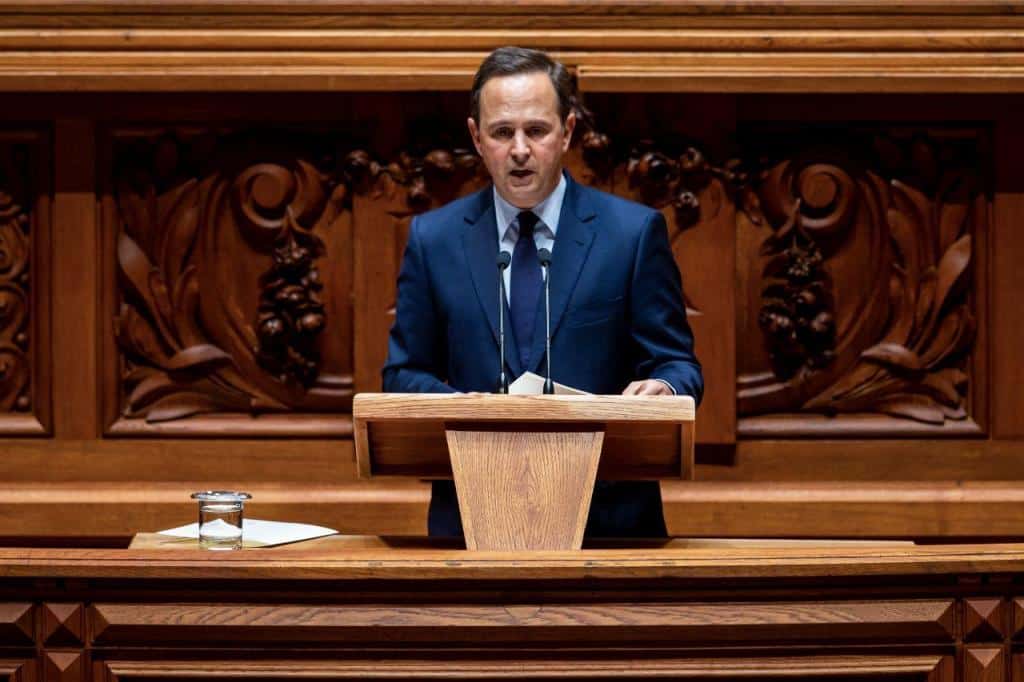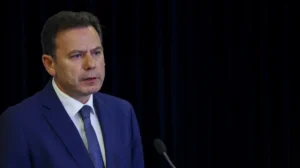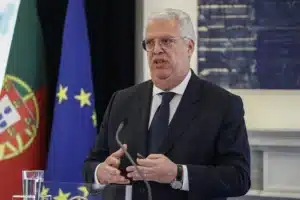Inquiry follows complaints that police belong to extremist groups like 1143
Margarida Blasco, Portugal’s minister of internal affairs has ordered an inquiry into possible disciplinary responsibilities of members of the security forces for participation in extremist organisations, such as the 1143 group, an official source has told Lusa.
According to a source in the minister’s office, Ms Blasco wants IGAS (the General Inspectorate of Internal Administration) to carry out “an inquiry, in all its length and depth, to ascertain possible disciplinary responsibilities” related to “the participation of members of the security forces in groups or movements, which, if confirmed, are extremely serious in a democratic state governed by the rule of law”.
The order came in the wake of reports of the participation of members of the security forces in extremist groups, such as 1143 – the group recently highlighted by the New York Times as an example of how ‘online hatred against migrants sparks real-world violence’.
Said the source, the impetus came “because the security forces are responsible for ensuring that fundamental rights are guaranteed in strict compliance with the Constitution of the Portuguese Republic” (they cannot be seen as espousing an organisation that advocates hatred).
Margarida Blasco’s office also clarified that “it was determined that all cases of an identical nature that had already been opened against police officers at the time of the opening of this case, should be referred to this inquiry process within the scope of the General Inspectorate of Internal Administration, to be dealt with there”.
The same source added that PJ Judicial Police, through the Central Directorate for Combating Banditry (sic), is responsible for “the prevention, criminal investigation and assistance of judicial authorities concerning various crimes – namely against peace and humanity, terrorist organisations and terrorism, against state security, except for those concerning the electoral process, and participation in an armed riot”.
The minister “will not make any further considerations or statements on this matter”, for the time being, stressed the source.
The ministry’s position comes after Bloco de Esquerda (BE) said earlier this week that extremist organisations like 1143 group and Habeas Corpus should be dismantled, questioning the government about what it is being done in this regard.
“Formal organisations like Habeas Corpus, and informal ones like the 1143 group, should be dismantled; in other words, we should use the full extent of the law to ensure that the groups are monitored, their members identified, and their organisations dismantled”, said BE’s parliamentary leader Fabian Figueiredo, who later explained to Lusa that, in a democracy, “there can be no place for hatred or violence in any form” – while group 1143’s ethos “is contrary to constitutional principles and dedicated to committing crimes”.
In BE’s question addressed to the government, the party also queried if there are any known members of the security forces and services who belong to 1143, what measures the government will take to identify this and whether Margarida Blasco considers that these members, if identified, should “be subject to disciplinary proceedings with a view to their expulsion from the security forces”.
In a separate question addressed to the Minister of Defence, BE asked the same about members of the Armed Forces. At time of writing however, no inquiry along the lines of that of the Ministry of Interior Administration had been announced.
This subject has been building since the last ‘invasion’ by Habeas Corpus of a book presentation in Idanha-a-Nova. Former parliamentary speaker Augusto Santos Silva noted the behaviour of police to ‘control’ the invasion (which was essentially to remove the author, and cancel the event). He wrote over social media that he “partially” understood this behaviour, “but one thing must be clear to all of us. It is the energetic ones who should be removed from the room, so that book presentations can take place peacefully, for those who freely want to attend (…) Too much tolerance of this far-right culture of violence and threats is no longer just tolerance, it is complicity“.
Source material: LUSA




















